Have you ever found yourself waiting anxiously for your construction project to move forward, only to be met with frustrating delays? Whether it's the weather, supply chain issues, or unexpected permitting problems, delays can turn what should be an exciting journey into a stressful ordeal. In this article, we'll explore how to effectively voice your concerns through a well-crafted complaint letter that addresses construction delays. If you're ready to take the next step in advocating for your project, keep reading to discover valuable tips and template ideas!
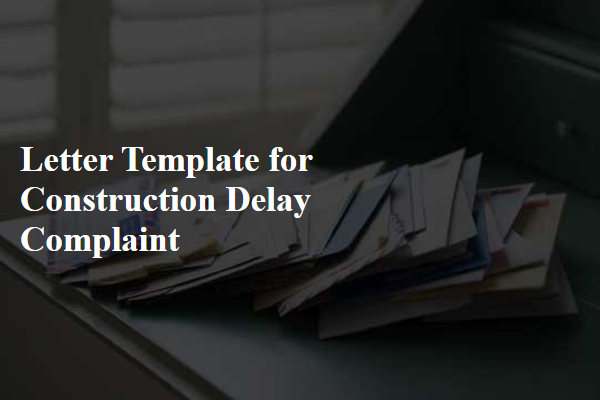
Clear identification of project and parties involved
Construction delays can significantly impact project timelines and financial planning, often leading to disputes. For instance, in the complex commercial development project named "Skyline Towers," involving the construction firm ABC Builders and the property owner XYZ Properties, untimely material deliveries from suppliers may have caused a setback of approximately three months. This delay affects the project's overall completion deadline of December 2023, risking potential revenue losses estimated at $500,000 due to missed lease agreements. Additionally, the involvement of critical subcontractors, such as electrical and plumbing specialists, may exacerbate the timeline delays if the necessary resources are not allocated promptly. Addressing these delays requires clear communication among all parties to ensure accountability and efficient resolution.
Detailed description of the delay and its impact
Construction delays often arise due to various factors including adverse weather conditions, supply chain disruptions, or labor shortages. For instance, inclement weather, such as heavy rainfall recorded at 5 inches over two days, can halt excavation work on a project at Riverside Industrial Park, leading to a cascading impact on the timeline and budget. Materials like steel beams, critical for structural integrity, may face shipping delays, sometimes extending to six weeks, which stifles progress. Additionally, skilled labor shortages within the local workforce can result in a project stall, causing potential penalties or contract violations. These delays not only increase costs due to idle equipment and labor but can also lead to reputational damage for the contractor, especially if the project was set for completion before the winter season begins, where ground conditions may further complicate construction efforts. Such delays can significantly disrupt the overall project schedule, delaying occupancy for clients anticipating completion by Q4 of the fiscal year.
Reference to contract terms and agreed timelines
Construction delays often result from unforeseen circumstances affecting project timelines. Common causes include bad weather conditions, such as heavy rain or snow, which can halt activities on-site. Labor shortages and equipment failures can also contribute to extended delays, with tradespeople being unavailable due to various reasons, including strikes or illness. Additionally, delays in receiving crucial materials, such as steel or concrete, can impede progress. It's crucial to reference contract terms outlining specific completion dates and associated penalties for delays, such as liquidated damages, to ensure accountability. Compliance with agreed timelines is essential for maintaining project schedules and meeting stakeholder expectations. Proper documentation of delays is necessary to uphold rights and manage claims effectively.
Request for resolution or compensation
Construction delays can significantly impact project timelines and budgetary constraints, often necessitating clear communication regarding the issues faced. One common reason for delays includes unforeseen weather events, such as heavy rains or snowstorms, which can halt progress for extended periods. An effective complaint should detail the specific delays, referencing project milestones and original completion dates, with particular attention to any contractual obligations outlined in agreements with contractors or subcontractors. Furthermore, it is important to include any financial repercussions incurred, such as additional costs for temporary housing or storage, while requesting a clear resolution or compensation for the inconveniences faced. Documentation, including photographs of delayed work and correspondence with contractors, serves to strengthen the complaint.
Professional and polite tone
In the bustling metropolis of New York City, construction delays can significantly impact both residential and commercial projects. Permits issued by the City's Department of Buildings often require strict adherence to schedules outlined in initial planning stages. For example, a delay lasting more than two weeks can disrupt not only the timeline but also financial projections, as contractors face penalties or increased labor costs. The construction phase includes vital elements like foundation work, steel framework, and final inspections. Delays can result from issues such as unfavorable weather conditions, supply chain disruptions, or labor shortages, making it essential for project managers to communicate effectively with all stakeholders involved. Timely updates about such setbacks are crucial for maintaining trust and ensuring that projects are completed within acceptable time frames.

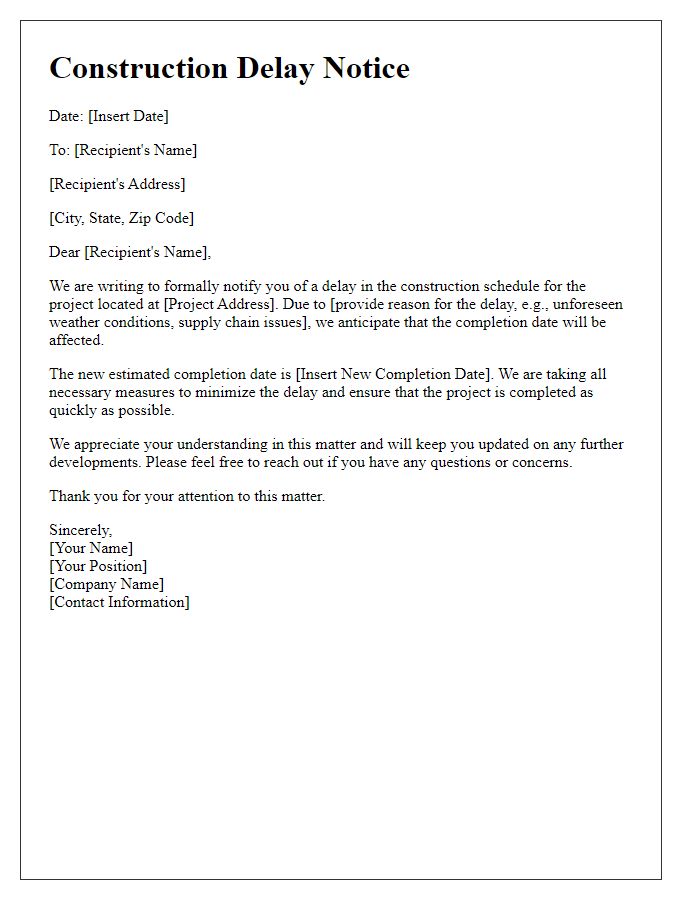
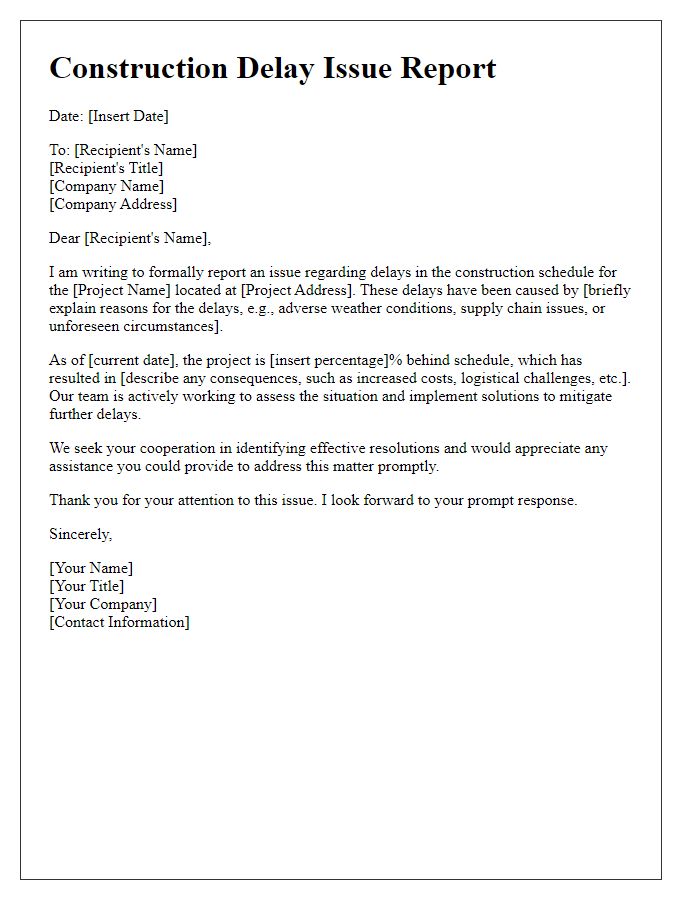
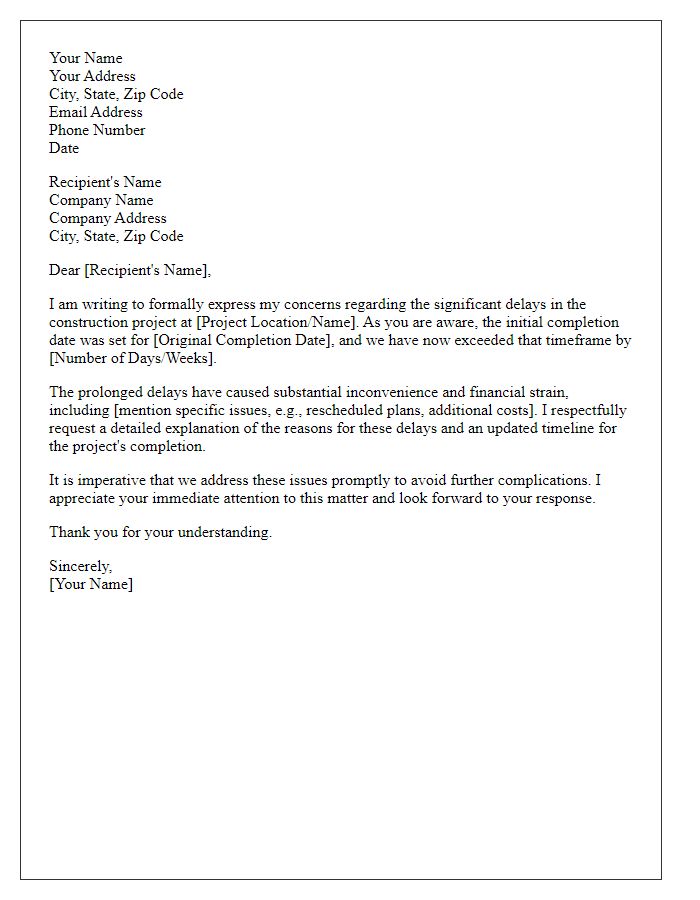
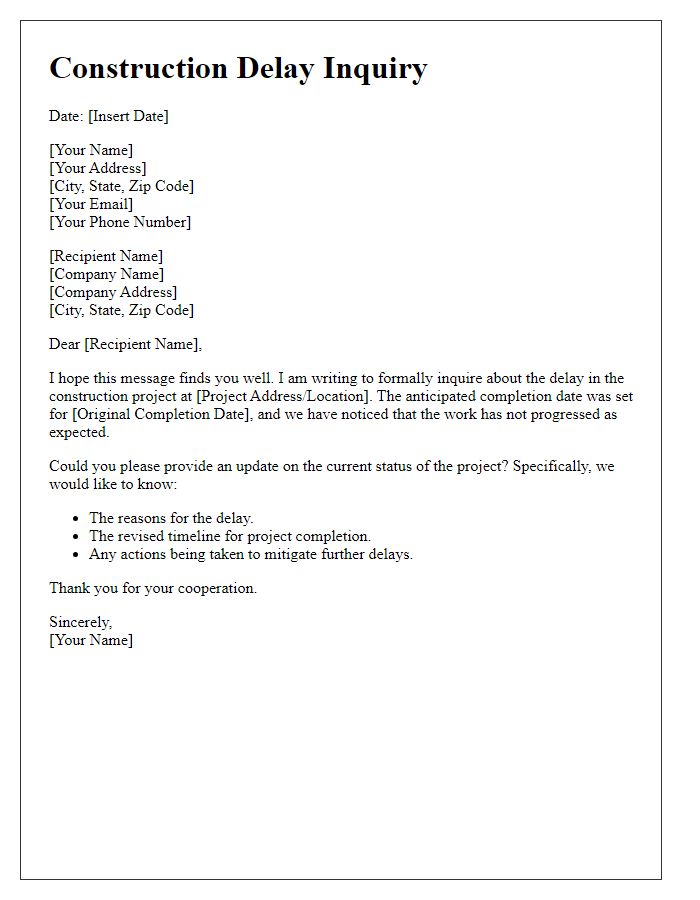
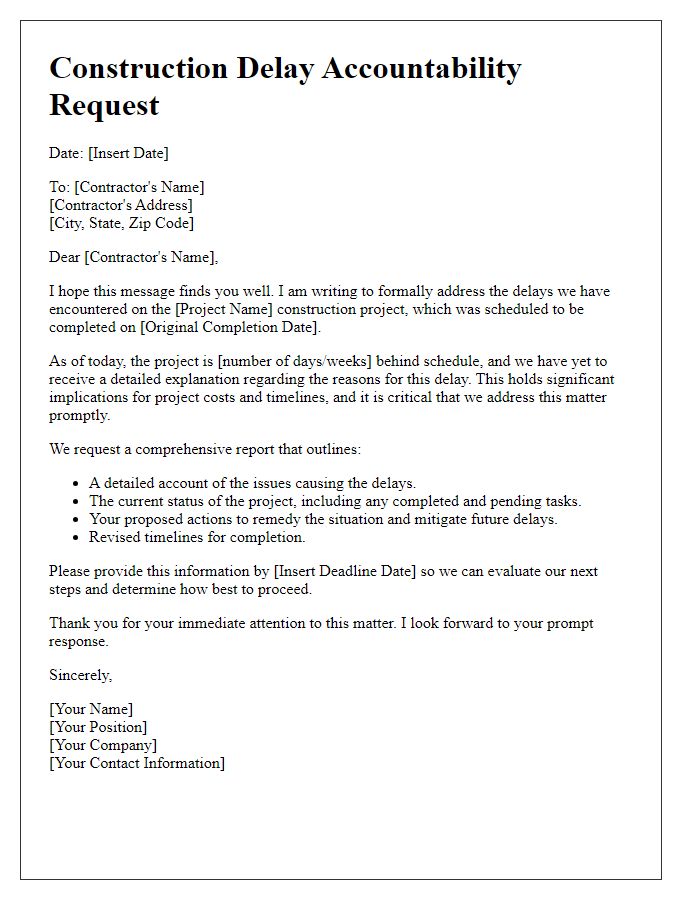
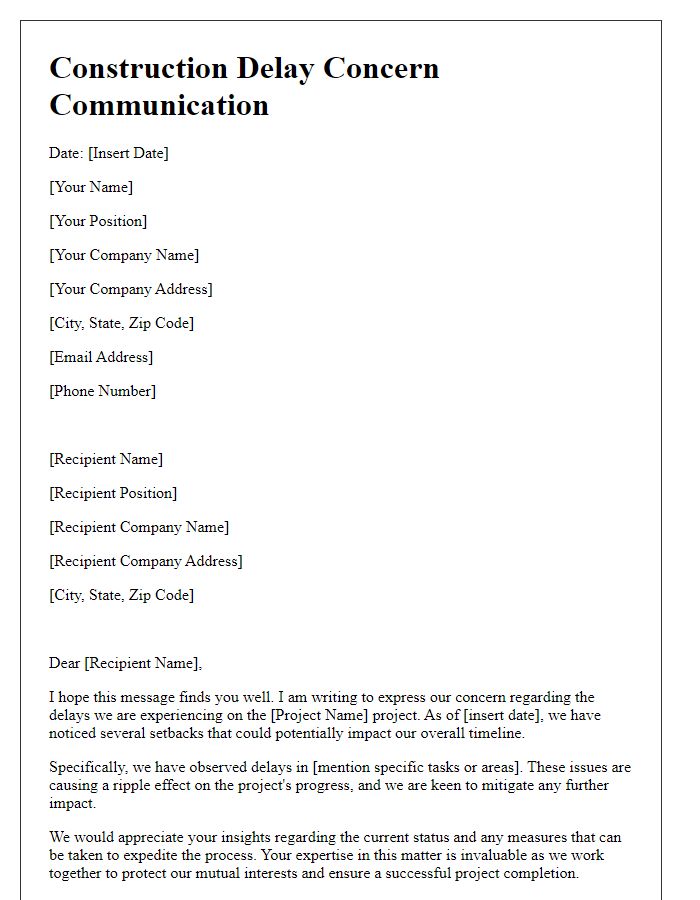
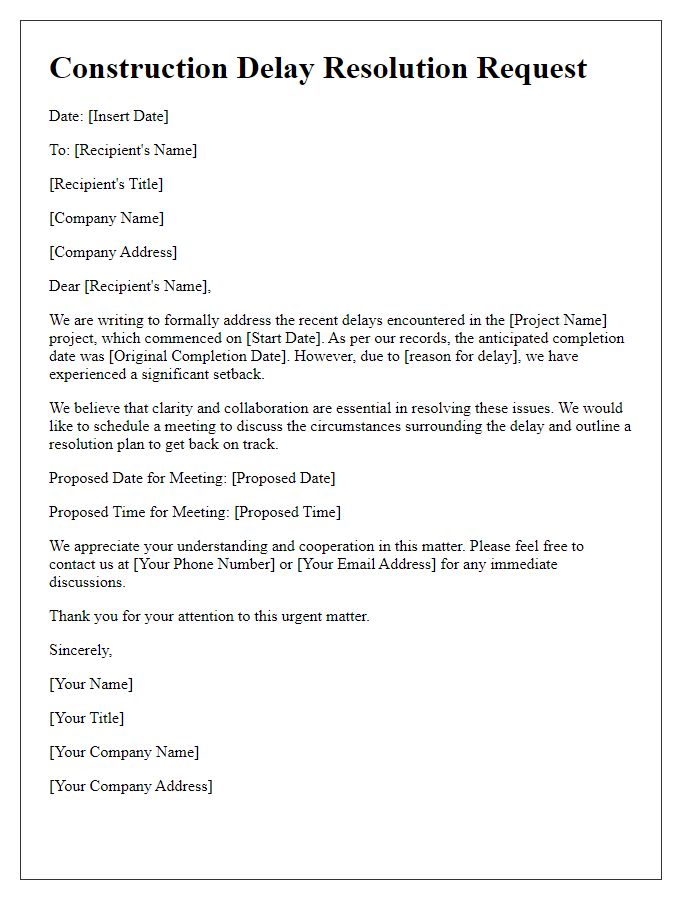
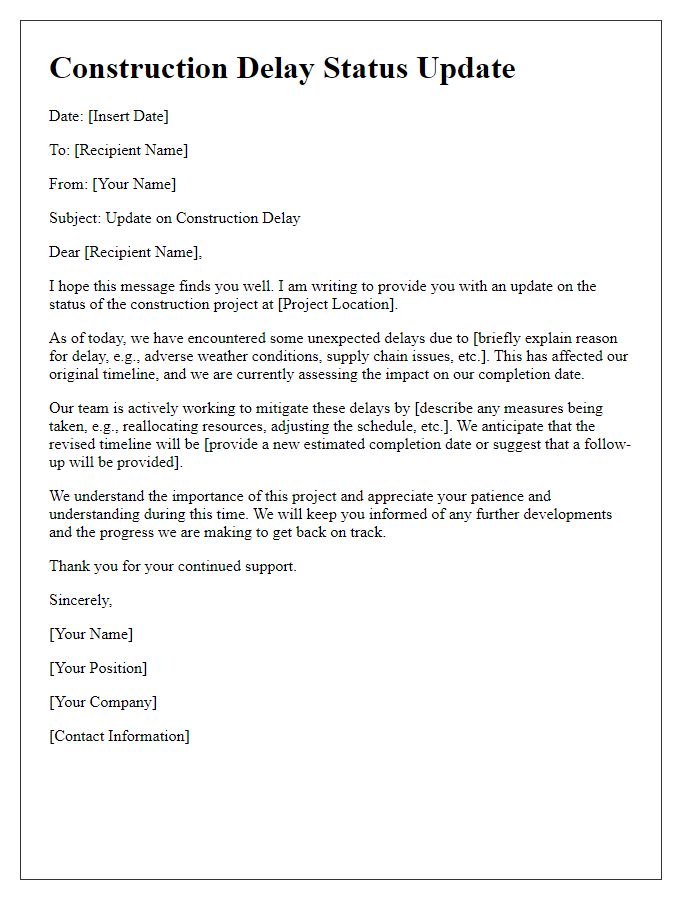
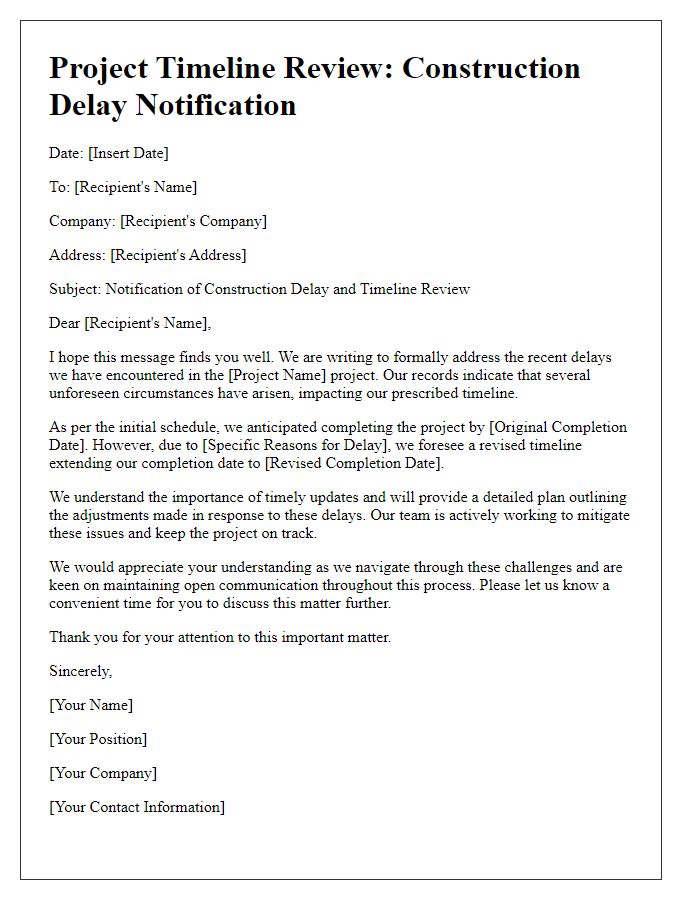
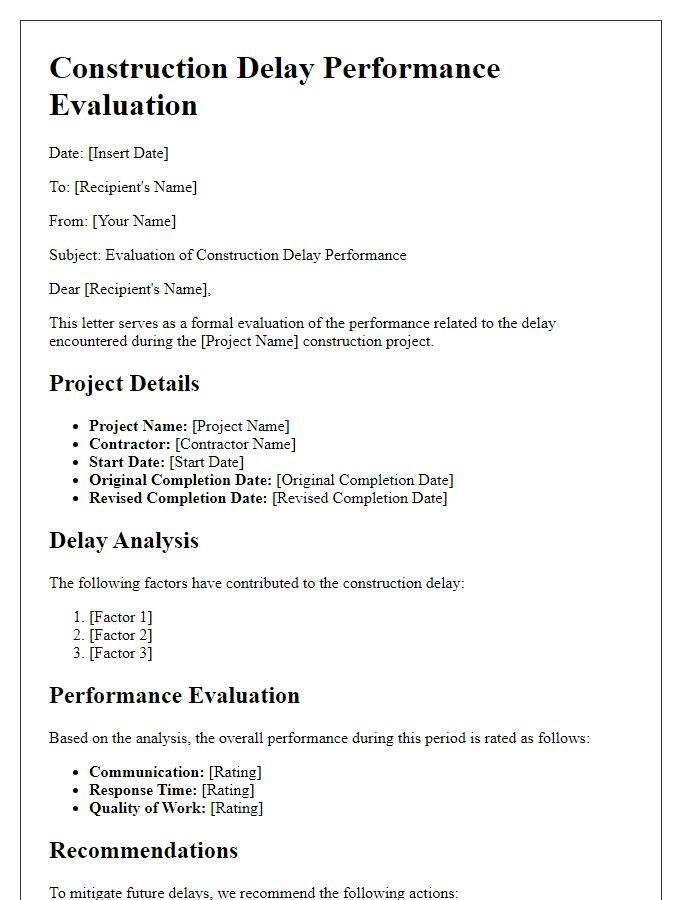


Comments